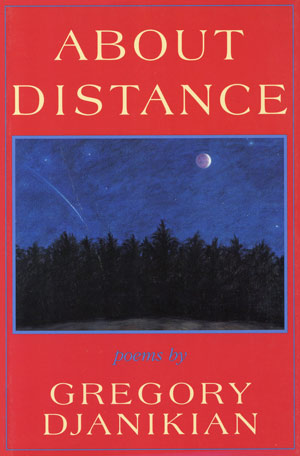Born in Alexandria, Egypt, Djanikian projects, in his most expansive poems, a spirit of Mediterranean warmth and inclusive forgiveness. In long and fluent sentences and open-ended stanzas, he celebrates the feckless happiness of his father, who “drives with the angel of wreckage at his shoulder/and his life’s expanse wildly before him.” He realizes the eccentricities of his grandmother, “garlic tied to her jaw with handkerchiefs,” who admonishes him to remember her and “to always eat what [he] love[s].” Yet in other, more formal poems, he minds his manners and restricts his diet, writing in well-turned couplets and restrained self-conscious phrases. And throughout his collection, in form as well as content, an appetite for openness and “enlargements of feeling” contends with a penchant for elegance, compression and precision…striking a balance between open-handedness and formality, the watchful mind and the receptive heart.
—Ben Howard, Shenandoah
It is Djanikian’s sense of precision about distances, his awareness of the riskiness of engaging in nostalgia, his willingness to step beyond cleverness, which makes this book so valuable and give it an interest beyond the small circle of his family and his own memories. We do not think hard enough about tenderness…Commonly, we uphold a stern standard of hard-nosed pretense in art that is not adequate to the demands of reality…This is a message for poets and all of us who insist on a hard cleanliness in the emotional surface of poems. If poems are about distance, insofar as they are intended to touch us, perhaps they must be allowed to work the veins of sentiment, and flirt with nostalgia.
—Alec Marsh, Boston Book Review
It is too easy…to love a book so aware and honest yet so positive, whose first poem ends with lines that pertain to the volume as well as the individual poem: “everything we have ever longed for/seems on the verge of arriving.” This is the kind of poetry that takes poetry out of the classroom and into our world, the kind of writing that actually could make poetry popular.
—Kliatt Reviews
